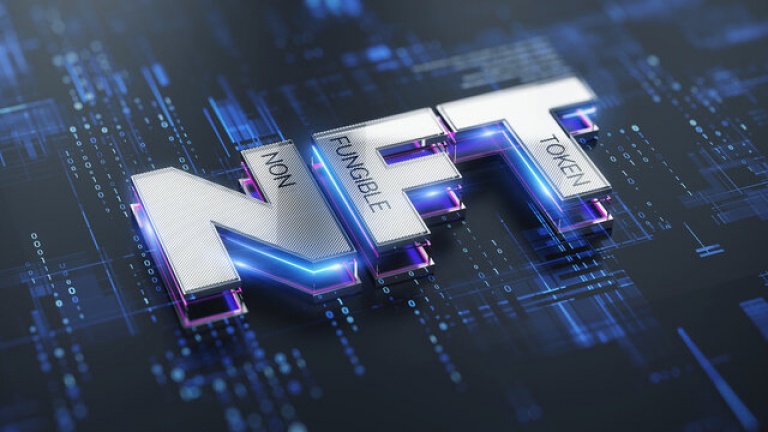Non-Fungible Tokens (NFTs) are transforming the way we perceive digital assets. With the advent of blockchain technology, the digital art world is undergoing a major paradigm shift, and the demand for NFT marketplaces has increased rapidly. NFT marketplaces serve as a platform for creators to sell their unique digital assets to buyers in a secure and transparent manner. In this article, we will explore the cost associated with NFT marketplace development.
What are NFT marketplaces?
An NFT marketplace is an online platform that allows creators to mint, showcase, and sell their digital assets. NFTs are unique digital assets that are stored on a blockchain network, making them tamper-proof and secure. NFT marketplaces allow creators to tokenize their digital assets, such as artwork, music, videos, and other collectibles. These tokens can be bought, sold, and traded just like physical assets, providing a new revenue stream for creators.
Factors influencing the cost of NFT marketplace development
The cost of developing an NFT marketplace depends on several factors, such as:
- Platform selection
The platform on which the NFT marketplace is built is a crucial factor in determining the development cost. There are several blockchain platforms available, such as Ethereum, Binance Smart Chain, Polkadot, and others. Each platform has its advantages and disadvantages, and the cost of development varies depending on the platform selected.
- Features and functionality
The features and functionality of the NFT marketplace play a significant role in determining the development cost. A basic NFT marketplace would allow creators to mint, showcase, and sell their digital assets. However, more advanced features such as auctions, bidding, and peer-to-peer trading would increase the cost of development.
- Design and User Interface
The design and user interface of the NFT marketplace is essential for creating a seamless user experience. A well-designed and user-friendly interface will attract more buyers and sellers to the platform. However, the cost of design and user interface development can be significant.
- Legal and Regulatory Compliance
NFT marketplaces must comply with the legal and regulatory frameworks in their respective jurisdictions. Compliance with regulations such as Anti-Money Laundering (AML) and Know Your Customer (KYC) can significantly increase the development cost.
- Development Team
The development team's size and expertise are crucial factors in determining the NFT marketplace's development cost. A team with a proven track record of developing blockchain-based platforms can command higher rates.
Cost Breakdown of NFT Marketplace Development
Developing an NFT marketplace requires a range of technical expertise and resources, and the cost can vary depending on various factors such as features, complexity, and development team's experience.
Here's a breakdown of the costs involved in NFT marketplace development:
Concept and Design: Before development, you need to conceptualize and design your NFT marketplace. This includes creating wireframes, mockups, and user flow diagrams. The cost of concept and design can range from $10,000 to $50,000 or more, depending on the complexity and quality of the design.
Development: Developing an NFT marketplace requires a team of skilled developers, including front-end and back-end developers, blockchain developers, and smart contract developers. The cost of development can range from $50,000 to $200,000 or more, depending on the complexity of the features you want to implement.
Smart Contracts: Smart contracts are an essential part of NFT marketplaces as they allow for the creation and transfer of NFTs. You'll need to hire a team of smart contract developers to create secure and efficient smart contracts. The cost of developing smart contracts can range from $10,000 to $50,000 or more, depending on the complexity of the contracts.
Blockchain Integration: NFT marketplaces are typically built on blockchain technology, so you'll need to integrate your marketplace with a blockchain network. This involves setting up nodes, establishing smart contract interactions, and implementing APIs for transactions. The cost of blockchain integration can range from $20,000 to $100,000 or more, depending on the blockchain network you choose.
Testing and Deployment: Once the development is complete, you'll need to test your NFT marketplace rigorously to ensure it's secure and bug-free. The cost of testing can range from $10,000 to $50,000 or more, depending on the complexity of your marketplace. After testing, you'll need to deploy your marketplace to a production environment, which can cost up to $10,000 or more.
Maintenance and Support: Finally, you'll need to consider ongoing maintenance and support costs. This includes fixing bugs, updating features, and providing customer support. The cost of maintenance and support can range from $5,000 to $20,000 per month or more, depending on the complexity of your marketplace and the level of support you provide.
Conclusion:
In conclusion, developing an NFT marketplace is a complex process that requires careful consideration of several factors such as platform selection, features, design, legal compliance, and development team. The cost of developing an NFT marketplace varies depending on these factors and can range from tens of thousands to hundreds of thousands of dollars. However, with the growing demand for NFTs, developing an NFT marketplace can be a lucrative business opportunity for entrepreneurs.
If you are considering developing an NFT marketplace, it is essential to work with a reputable and experienced NFT marketplace development company. An experienced development team can guide you through the development process, provide valuable insights, and ensure that your NFT marketplace is secure, scalable, and user-friendly.


No comments yet